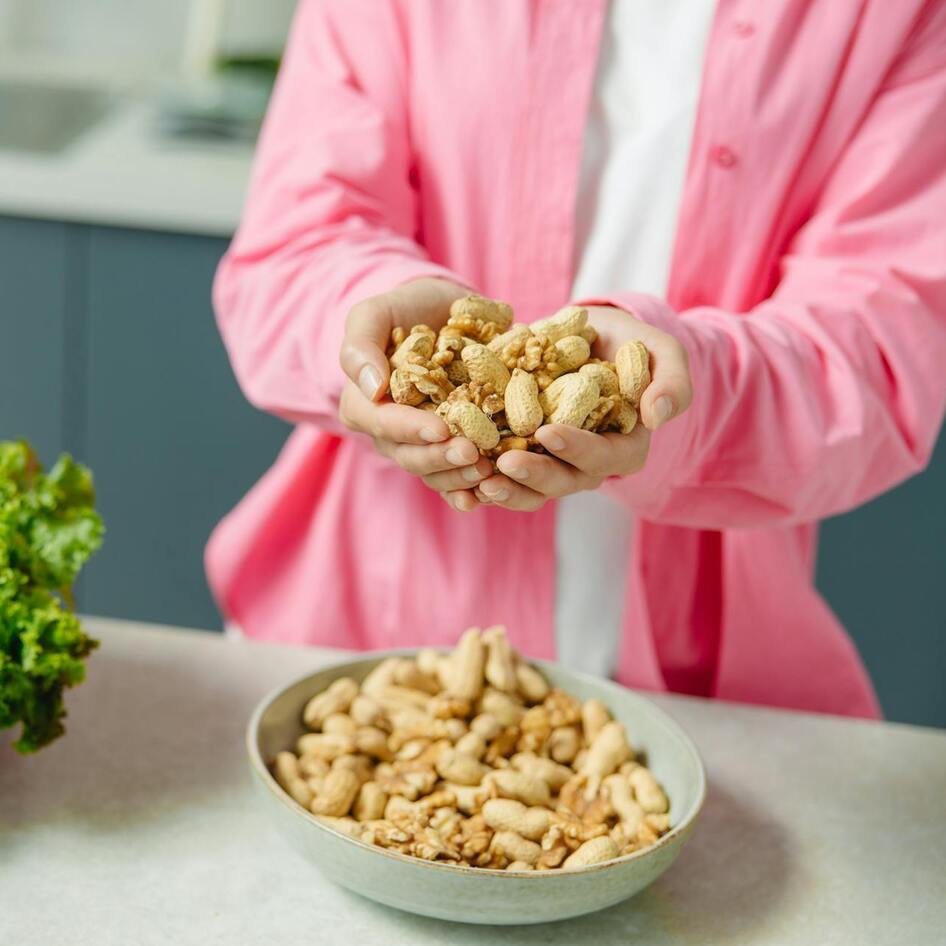Why Short But Intense Workouts are Ideal for Vegans
Follow these six steps to ensure your time at the gym is as effective as possible.
November 14, 2018
There’s an age-old debate between fitness buffs who swear by extended workout sessions, versus those who believe in the power of short but intense lifting sessions. Proponents of long workouts say that getting in more reps, sets, and variety is great for burning more calories and building endurance, while short workout advocates argue that abbreviated sessions show faster results, prevent energy slumps, and keep you focused. Truthfully, the best workout is the one to which you’ll actually stick. But if you’re vegan, the choice is simple, as short exercise routines complement a plant-based diet lifestyle because of the of the body’s specialized nutrient needs. By increasing the intensity and shortening the length of your workout, you can adapt to your body’s protein needs, gain muscle, balance creatine levels, boost insulin sensitivity, and achieve results faster. Here are a few suggestions to save you time in the gym while benefiting your body.
1. Adapt to your body’s protein needs
If you’ve recently made the switch to veganism, it’s important to take your body’s new protein needs into account. When you exercise for extended periods of time, your protein needs become elevated, which can be an issue for vegans who are getting accustomed to obtaining protein from plants alone. To accommodate this change, stick to shorter workouts so your body doesn’t have to rely on stored protein to get through training sessions. Eating before and after your workouts creates a massive impact on your gym routine. Good nutrient timing replenishes glycogen stores, which is essential to optimal resistance training performance, boosts protein synthesis, and supports muscle hypertrophy. You can retain the plant-based protein you’ve consumed for longer when your workouts are short and don’t drain those stores. Shorter, more intense workouts also maximize the protein you’ve consumed in pre-workout meals.
2. Gain muscle
When you stick to short and strenuous training sessions, you increase your body’s ability to retain muscle mass. There are few different factors that contribute to muscle loss, including age, exercise frequency, diet, and sleep. The good news is that vegan diets tend to be lower in calories, and low-calorie diets improve muscle activity and protein synthesis.
3. Overcome low creatine levels
Some vegan athletes are low on creatine because it can be obtained only through meat or supplementation. The body uses creatine as an energy source during exercise, so the longer you exercise, the more creatine you use. However, short bouts of intense exercise use less creatine and leave vegan athletes feeling less fatigued. To further prevent creatine-related fatigue, some vegan athletes turn to supplements to boost strength, anaerobic endurance, and glucose tolerance. Most creatine powders are synthetically created and 100-percent vegan; however, be aware that many creatine capsules contain gelatin. Top picks for vegan creatine include BulkSupplements’ Pure Micronized Creatine Monohydrate Powder and Raw Barrel’s Pure Creatine Monohydrate Powder.
4. Enhance insulin sensitivity
Another perk of interval training is that athletes can boost their sensitivity to insulin and tolerance for glucose with short but intense sessions. Insulin sensitivity represents the relationship between how much insulin must be produced to deposit a certain amount of glucose. It helps your muscle and fat absorb glucose, produce new blood sugar, and prevent disease. A vegan athlete’s insulin sensitivity is crucial because it prevents food from being stored as fat, reduces inflammation, and speeds recovery after training.
5. Achieve results faster
If you’re looking to burn fat, interval training is your best option. Short workouts translate to faster results as long as you keep the intensity level up. This is good advice for athletes and bodybuilders on any kind of diet, especially if you have a packed schedule. Short workouts mean more time to do other things outside the gym and achieve that coveted balance between work and real life. Research presented at an American Physiological Society meeting regarding the integrative biology of exercise showed that high-intensity training burns more calories faster. For many people, it’s also mentally easier to stick to a workout routine when it’s less time consuming, giving you more time for meal prep and healthy cooking.
6. Vegan workout plans and tips
Some of the most effective vegan workout plans include sprints, stairs, body weight lifts, and CrossFit. A typical interval routine looks like this: warm up for 3–5 minutes, exercise as hard and fast as you can for 30–60 seconds, recover but keep moving at a slower pace or reduced resistance for 90 seconds, and repeat 10 more times. If your main fitness goal is to gain muscle and strength, lift heavy weights (6–12 reps per set), push your body to the max every set to make each one count, and take a minute or two to recover between sets. Keep in mind that shorter workouts don’t mean that your body needs less time to recover. An insanely hard session can put just as much strain on the body, if not more, as several moderate intensity workouts. To speed your recovery time, eat high-protein vegan foods within 30 minutes of your workout to replenish nutrients and stimulate muscle repair. Nuts and seeds are quick and easy sources of post-workout protein for vegans. Carrots with hummus, bananas, and dried fruit are also great options to stash in your gym back for refueling before your next short but intense workout session.
Chris Willitts is the founder of VegetarianBodybuilding.com and a contributing writer for Muscle & Fitness, Vegan Health and Fitness Magazine, and Natural Muscle Magazine.
JUMP TO ... Latest News | Recipes | Guides | Health | Subscribe







